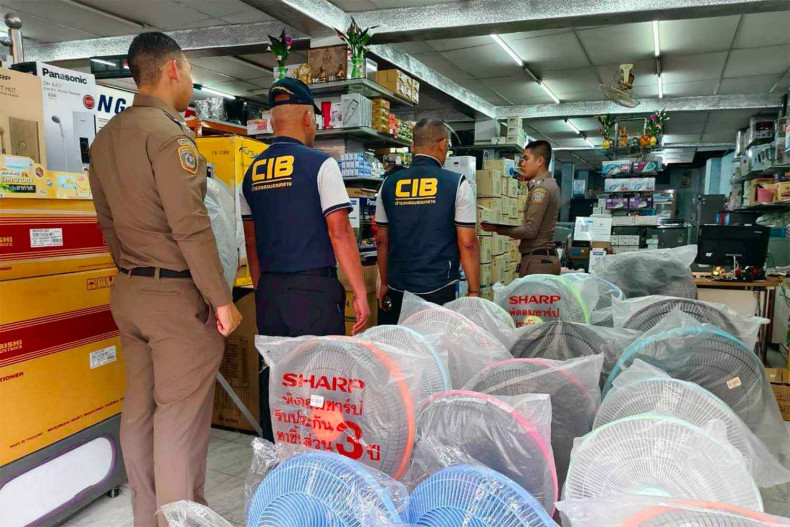Major Crackdown Launched
Raids Target Fraudulent Operations
On June 26, 2025, Thailand’s Revenue Department (RD) and Central Investigation Bureau (CIB) executed a sweeping operation, dismantling a sophisticated value-added tax (VAT) fraud ring responsible for over 1 billion baht in state losses. The raids, conducted across 14 locations in Tak, Chiang Mai, and Bangkok, targeted a network orchestrating fake transactions to exploit VAT refunds, a scheme that has shaken Thailand’s tax system.
Key Arrests Made
Ringleader and Accomplices Detained
The operation led to the arrest of 63-year-old Samran Naowarat, identified as the mastermind, along with nine associates. They face serious charges, including issuing illegal tax invoices, evading VAT, claiming fraudulent refunds, and using forged documents for tax credits. The bust, one of the largest in recent years, underscores Thailand’s intensified efforts to combat economic crimes, which cost the nation $2 billion annually, per 2024 police data.
Massive Evidence Seized
Documents and Devices Confiscated
Authorities seized over 100,000 documents, 20 mobile phones, and 30 computers, revealing the scale of the operation. The evidence points to a complex network of fake transactions designed to deceive tax authorities. By targeting such extensive documentation, the RD and CIB aim to trace the full extent of the fraud, which exploited loopholes in Thailand’s VAT system, a critical revenue source generating 7% on most goods and services.
Scheme’s Modus Operandi
Exploiting VAT Refund Loopholes
The fraud centered on S&M Brotherhood General Trading Co Ltd, Samran’s export company, which registered 20 shell companies and shops using family and employee names. These entities conducted fictitious inter-company transactions, inflating product prices and VAT without actual sales. The network then exported consumer goods to Myanmar-based accomplices, creating false records to claim substantial VAT refunds, a tactic that netted 150 million baht from 2021 to 2022 alone.
Impact on State Revenue
Billion-Baht Losses Uncovered
Pol Maj Gen Thatphum Jaruprat, head of the CIB’s Economic Crime Division, revealed that the scheme caused over 1 billion baht in damages by exploiting VAT exemptions on exported consumer goods. The inflated invoices allowed the network to claim refunds for taxes never incurred, undermining Thailand’s fiscal stability. This case follows a 2024 crackdown on similar fraud, which recovered 100 million baht, highlighting persistent challenges in tax enforcement.
Legal and Preventive Measures
Strengthening Tax Oversight
The suspects have been transferred to the Economic Crime Division for prosecution, facing penalties under Thailand’s Revenue Code, including up to seven years in prison and fines up to 200,000 baht. The RD is now enhancing its data analytics systems, as seen in 2024 initiatives, to detect fake invoices and prevent future fraud. With 800,000 businesses in Thailand’s VAT system, these measures aim to safeguard billions in annual revenue, ensuring economic stability.








